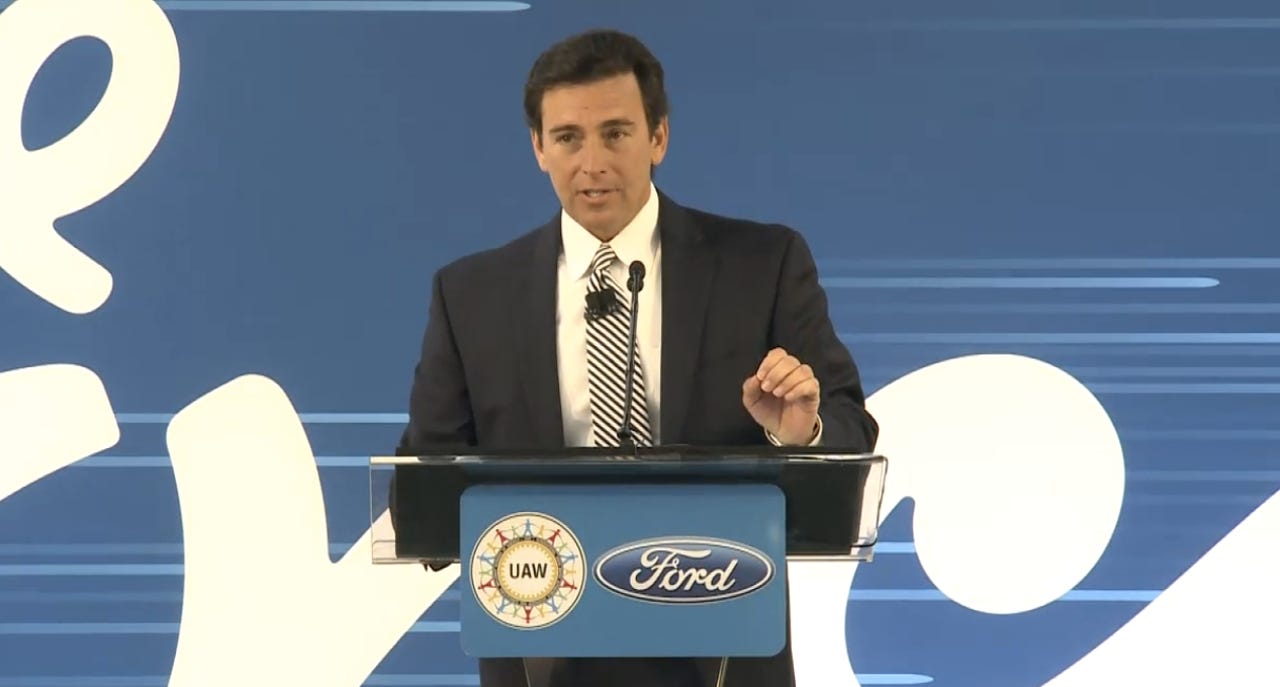Ford expands investment in electric and autonomous vehicle production


Ford CEO Mark Fields.
The Ford Motor Company on Tuesday announced a series of innovation initiatives that will significantly expand the company's electric and autonomous vehicle offerings. The announcements stem from Ford's previous $4.5 billion investment in electrified vehicle production and its push to morph into both a next-generation automaker and a high-tech mobility company.
Featured
In terms of "electrified" vehicles, Ford revealed seven of the 13 planned EVs it intends to release in the next five years, including hybrid versions of the F-150 pickup and Mustang in the U.S., a plug-in hybrid Transit Custom van in Europe and a fully electric SUV with an expected range of at least 300 miles for customers globally.
Ford is also piloting wireless technology that simplifies the electric vehicle recharging process. Called FordPass, the system supposedly charges an electric vehicle as it rests on a pad in a parking spot, without the need for plugs or wires.
"As more and more consumers around the world become interested in electrified vehicles, Ford is committed to being a leader in providing consumers with a broad range of electrified vehicles, services and solutions that make people's lives better," said Ford CEO Mark Fields. "Our investments and expanding lineup reflect our view that global offerings of electrified vehicles will exceed gasoline-powered vehicles within the next 15 years."
As for Ford's autonomous vehicle plans, the automaker is developing high-volume autonomous vehicles for commercial ride-hailing in North America. The hybrid vehicle will debut in 2021 and will be built at Ford's Flat Rock plant in Michigan.
And with a new $700 million investment, the Michigan plant will become the epicenter of Ford's next-gen production efforts going forward. The Flat Rock investment was made possible by Ford's plans to cancel the creation of a new $1.6 billion plant in San Luis Potosi, Mexico.
Since becoming Ford's CEO in 2014, Fields has prioritized research and development of self-driving cars. Last August, Fields outlined his vision for the technology and the role he hopes Ford will play in the long run, which includes providing autonomous cars for the next 100 years.
Ford's strategy here is to develop both driver assisted and fully autonomous vehicles, but with a greater focus on driverless ride sharing instead of fully autonomous cars for personal use. Ford previously said its goal was to build a vehicle to the SAE Level 4 standard of automation (meaning no steering wheel or pedals) to be used mostly in urban, geofenced regions to supplement public transportation. Ford's vehicles for personal use will focus more on driver-assist functionality, in which humans still operate the vehicle.
SEE ALSO: Ford: Self-driving cars are five years away from changing the world | Ford's autonomous car takes the fear out of driving in the dark | Ford triples size of autonomous Ford Fusion Hybrid test vehicles fleet | Ford tests collaborative robots in German Ford Fiesta plant